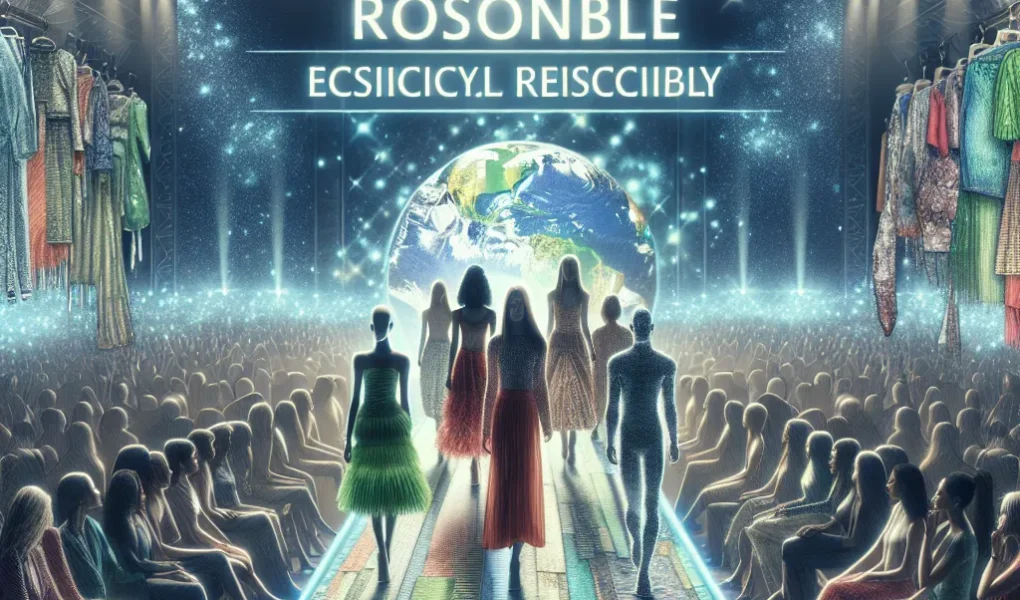The Evolution of Sustainable Fashion: A Historical Perspective
In recent years, there has been a notable shift in the fashion industry towards more sustainable and eco-friendly practices. This trend has been influenced by a growing awareness of the environmental impact of fast fashion and the need for more ethical production methods. The evolution of sustainable fashion can be traced back to the early 20th century, with the emergence of the first concepts of ethical and eco-conscious clothing. However, it was not until the late 20th century and early 21st century that sustainable fashion gained significant momentum.
During the 1980s and 1990s, the environmental movement and increased awareness of issues such as climate change and pollution led to a greater emphasis on sustainable living and consumer attitudes towards fashion began to shift. This period saw the rise of eco-friendly materials, such as organic cotton and recycled fibers, as well as the development of ethical production practices. Companies started to take notice of the demand for sustainable fashion, and a new market for eco-conscious clothing began to emerge.
By the early 2000s, sustainable fashion had evolved from a niche movement to a mainstream trend. Major fashion brands and designers started incorporating sustainable practices into their collections, and consumer interest in ethical fashion continued to grow. The rise of social media and increased awareness of global issues further fueled the demand for sustainable and ethical fashion, leading to a more widespread adoption of eco-friendly practices across the industry.
Today, sustainable fashion is a significant and influential force in the industry, with consumers, brands, and designers alike recognizing the importance of ethical and environmentally friendly clothing. The evolution of sustainable fashion reflects a changing mindset towards consumerism and a growing commitment to creating a more sustainable and responsible industry. As the trend continues to gain momentum, the future of fashion looks set to be increasingly focused on eco-conscious and ethical practices.
The Environmental Impact of Fast Fashion: A Call for Change
The rise of sustainable fashion has been driven by the increasing awareness of the environmental impact of fast fashion. Fast fashion, characterized by quick production cycles and low-cost clothing, has led to an alarming increase in textile waste and pollution. The call for change in the fashion industry is becoming louder as consumers and activists demand more transparency and eco-friendly practices.
The environmental impact of fast fashion is staggering. The production of cheap, disposable clothing contributes to high levels of carbon emissions, water pollution, and the depletion of natural resources. Additionally, the excessive use of synthetic fibers and chemicals in production further exacerbates the environmental damage. The fashion industry is one of the largest contributors to global pollution and waste, making it imperative for sustainable alternatives to take center stage.
As consumers become more informed about the detrimental effects of fast fashion, there is a growing demand for ethically produced and sustainable clothing. Influential figures in the fashion industry are also championing eco-conscious practices, leading to a shift in consumer expectations and industry standards. Sustainable fashion, characterized by ethical sourcing, fair labor practices, and eco-friendly materials, is gaining traction as a viable solution to combat the environmental impact of fast fashion.
In conclusion, the environmental impact of fast fashion has sparked a powerful movement towards sustainable and eco-friendly practices in the fashion industry. As consumers and industry players alike recognize the urgent need for change, the rise of sustainable fashion is poised to reshape the future of the fashion industry for the better.
Innovations in Sustainable Materials and Production Techniques
Innovations in sustainable materials and production techniques have been pivotal in driving the rise of sustainable fashion in recent years. Designers and brands are increasingly recognizing the importance of using eco-friendly materials and reducing the environmental impact of their production processes. One of the key trends in sustainable fashion is the development and utilization of innovative materials such as organic cotton, recycled polyester, and regenerated fibers made from materials like bamboo and wood pulp. These materials not only reduce the reliance on traditional, resource-intensive fabrics but also have a significantly lower carbon and water footprint.
Furthermore, advancements in production techniques have also played a crucial role in transforming the fashion industry. Technologies such as 3D printing, waterless dyeing, and zero-waste pattern cutting are revolutionizing the way garments are manufactured, significantly minimizing waste and energy consumption. Additionally, the adoption of circular economy principles, including garment recycling and upcycling, is fostering a more sustainable approach to fashion production.
Overall, innovations in sustainable materials and production techniques are driving a fundamental shift towards a more environmentally conscious and ethical fashion industry. As consumer demand for sustainable fashion continues to grow, it is evident that these innovations will play an increasingly vital role in shaping the future of the fashion industry.
Consumer Behavior Shift: Embracing Ethical Fashion Choices
Consumer behavior shift towards embracing ethical fashion choices has been a prominent trend in the rise of sustainable fashion. In recent years, consumers have become more conscious of the environmental and social impact of their clothing purchases, leading to a growing demand for ethically produced and sustainable fashion items. This shift in consumer behavior can be attributed to a variety of influences, including increased awareness of environmental issues, ethical concerns about labor practices in the fashion industry, and a desire to support brands that align with their values.
As consumers prioritize transparency and sustainability, they are seeking out fashion brands that demonstrate a commitment to ethical practices, such as using eco-friendly materials, reducing carbon emissions, and ensuring fair labor conditions throughout their supply chains. This shift has compelled fashion companies to re-evaluate their production processes and sourcing methods to meet the evolving demands of the market.
Moreover, the rise of social media and digital activism has played a significant role in shaping consumer behavior, enabling individuals to amplify their voices and advocate for sustainable and ethical fashion practices. Influencers and advocates in the fashion industry have leveraged their platforms to promote sustainable fashion choices and encourage their followers to make conscious purchasing decisions.
As a result, the fashion industry has witnessed a proliferation of eco-friendly initiatives, such as clothing rental services, upcycling and recycling programs, and the adoption of circular fashion principles. These initiatives are not only reshaping consumer behavior but also influencing the entire fashion ecosystem, prompting designers, retailers, and manufacturers to integrate sustainability into their core business strategies.
In conclusion, the consumer behavior shift towards embracing ethical fashion choices is a significant driving force behind the rise of sustainable fashion. As consumers increasingly prioritize transparency, ethical production practices, and environmental impact, fashion brands are compelled to adapt to these evolving preferences, ultimately reshaping the future of the industry.
Future Prospects of Sustainable Fashion in the Global Market
The future prospects of sustainable fashion in the global market look promising, with an increasing number of consumers becoming more conscious of the environmental and ethical impacts of their purchasing decisions. As the demand for sustainable fashion continues to rise, it is expected that more brands will incorporate eco-friendly practices into their production processes. This trend is further influenced by a growing awareness of the negative effects of fast fashion on the environment and society.
In addition, advancements in technology and innovation are likely to play a significant role in the future of sustainable fashion. From the development of new sustainable materials to the use of digital platforms for promoting transparency and accountability, technological advancements offer immense potential for the growth of sustainable fashion in the global market.
Furthermore, the influence of regulations and policies aimed at promoting sustainability in the fashion industry is expected to drive positive change. Governments and international organizations are increasingly focusing on implementing measures to support sustainable practices, which will likely have a profound impact on the future of fashion worldwide.
Overall, the future of sustainable fashion in the global market appears bright, with evolving consumer preferences, technological innovations, and regulatory actions all contributing to the growing importance and prominence of sustainable practices in the fashion industry.



